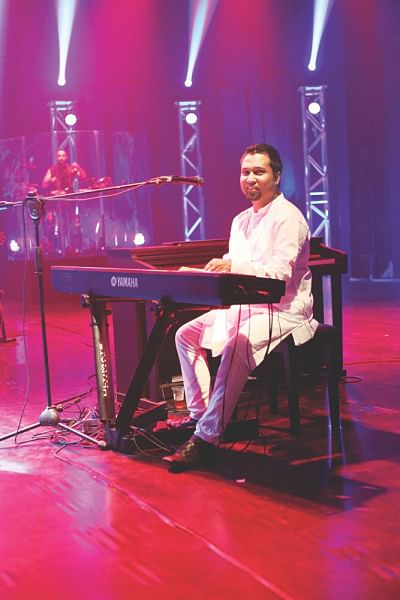Wind of Change

The biggest congregation of television shows take place during the time of Eid, especially in Eid-ul-Fitr. There are aplenty channels racing towards producing a greater number of television shows than competitors, broadcasting shows nearly 24hours each day during the 7-day period of Eid. That includes news channels as well, producing a variety of shows such as dramas, interviews, talk-shows, etc. What happens amid all the glamorous shows and movies is that the TV viewers, who are the target audience for these occurrences, lose track of what they watch and direction to what they should be watching among the huge list of shows. The excessive accumulation of advertisements during the commercial breaks between television shows plays a big role in putting-off the viewers, forcing them to switch to the next alternative out of the dozen. This has become a quirky Eid trend in Bangladesh, which seems to have no way out unless something truly exclusive is introduced. This eventually leads to a loss in viewership for the channels as they are unable to retain the audience, due to their lack in differentiation of programs. In the middle of all these, one television show stood out with their simplicity and distinctiveness.
Wind of Change was a live musical show, where performances are seen from popular local artists. What sets the show apart is its inclusion of artists from all around the world to perform with the local artists of Bangladesh. Similar to Coke Studio, the program has already received positive response from the audience in its initial stage of broadcast. Wind of Change acts as a bridge towards connecting musicians from different parts of the world and allows these artists to exchange experiences with other fellow musicians. With the help of foreign musicians who join the local artists live on stage, the artists play their own songs previously released but in different renditions, blending their style with the musicians' own unique style to create an incredible auditory experience.
The artists who performed in the show range in a diverse list of genres. From leading rock bands in Bangladesh such as Miles and Ayub Bacchu to Samina Chowdhury's enthralling melodies and folk artists such as Kuddus Boyati; everyone is a part of Wind of Change.
The best musicians in the world are a part of this musical phenomenon. Artists such as Anna Rakita, a top violinist of Russia has worked on fusions of European and Bengali music here. She is a musician with a right individual style of performance, coupling incredible power, modern style of playing with excellent technique. Bass prodigy Mohini Dey, who is popular for sharing the stage with the likes of Steve Vai, George Brooks, and A.R.Rahman has joined Gaan Bangla Television to be a part of the project. She is the daughter of bass player Sujoy Dey. The visiting artists have worked in Bangladesh with some of the most prominent names in the music industry.
The musical performances were composed by the brainchild of the concept "Wind of Change", Kaushik Hossain Taposh. The series is Gaan Bangla Television's approach to spreading positivity and unite cultures through one of the most effective forms of communication: Music.
The concept itself is not entirely unique, as other countries have experienced similar musical shows, but what makes this show really worthwhile is the level of standard it maintained in terms of production, music and performance; every aspect of the show was at par with international standards.
Bangladesh has had a difficult time in establishing networks with other countries in terms of music. The new generation of Tagore enthusiasts performing Tagore songs is different than that of previous generations, which is quite natural but unacceptable to some. Change is inevitable and with passing times came change in taste of preferred musical instruments, types of voicing, etc., which all lead to the evolution of taste in music. Wind of Change is a testament to what the future of Bangladeshi music will grow into.
This show will continue as a series for the days to come. There has been an uncertainty in the musical industry of Bangladesh as to whether the rich Bengali culture of music will fade away, but with the introduction of this show, it only seems as if the enriched Bangladeshi culture has only scratched the surface, and is yet to reach its epitome.
By: Showbiz Desk

 For all latest news, follow The Daily Star's Google News channel.
For all latest news, follow The Daily Star's Google News channel. 



Comments